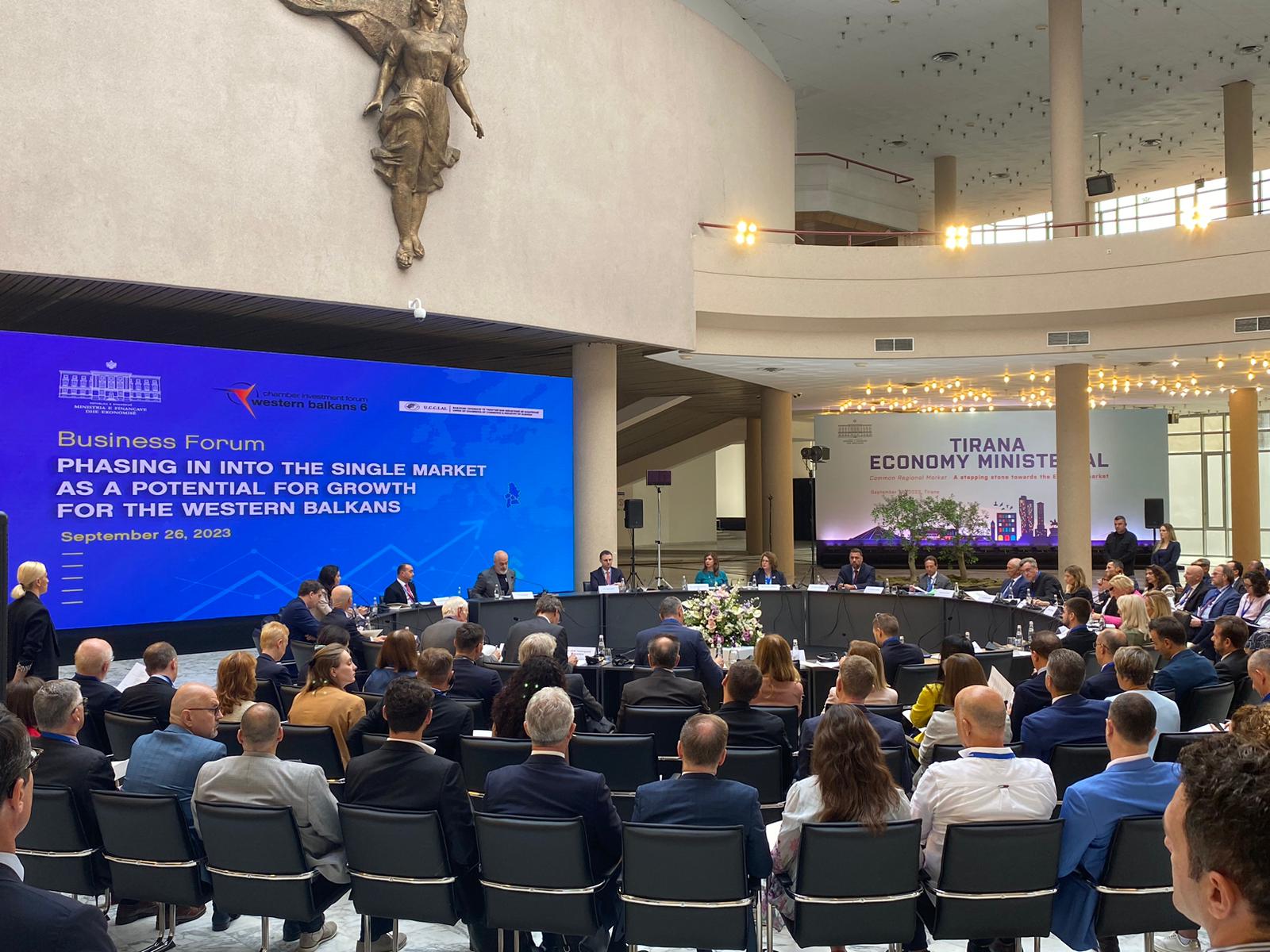Čadež from Tirana: Due to political restrictions, companies find it increasingly difficult to do business
Sep 26, 2023
Representatives of the business communities of all the Western Balkan economies have been clearly saying for the past eight years that the EU and the USA should make more efforts to stabilize and normalize relations between Belgrade and Pristina, that they are looking for a region without barriers in doing business and a new, faster inclusion model of the region in the economic structure of the European Union, said Marko Čadež, the president of the Chamber of Commerce and Industry of Serbia. Otherwise, neither the region nor the European Union will survive, said Čadež at the Business Forum "Phasing in the Single Market as a Potential for the Growth of the Western Balkans", which was held as part of the Berlin Process in Tirana.
In the context of current events in Kosovo and Metohija, Čadež warned that it was increasingly difficult for companies to do business and operate." Between the two conferences, we no longer hope that something will get better, but we are only hoping that it will not aggravate when it comes to politics. And we see that the situation can be even more complicated, complex, and difficult for the economy. Although our companies, regardless of whether they are from Pristina, Peć, Kragujevac, Belgrade, Banja Luka, or Sarajevo, have been working together for a long time, it is more and more difficult to survive, if you have all these restrictions imposed by politics. We can no longer be a part of an event unless we can hear that something will change for real, and this is becoming increasingly rare," Čadež said.
As an example of businesses from the region that are losing competitiveness, Čadež cited a distillery from Serbia, which has 20 percent higher export costs because it is not from the EU. "So, at the very start, we can no longer be competitive with our products, if Europe does not understand this." And Europe should understand it because its entire industry is here, production is in the region, its factories are here, which have the same problem, firstly due to political circumstances and the disagreement of its members, what they want to do with this region and what they want with Europe in general ", explains the president of the CCIS.
Čadež recalls that in recent years, at conferences within the Berlin Process, he spoke about commercial reasons for regional cooperation, the need for a different relationship with the European Union, and he also presented political arguments, this time he used "medical arguments" and spoke to participants of the forum about the importance of overcoming past events and traumatic experiences in the region.
He pointed out that it was important for politicians in the EU to understand where Europe's industrial future and security regarding access to rare metals is, given that 98 percent of Europe’s imports are from China, instead of integrating the Western Balkans, which has all the necessary resources.
"I asked for Berlin process not to be another failed therapy session, but instead they should sit down and negotiate solutions - the region's rapid entry into the European economic community and the use of all the benefits of the single market," Čadež said.
LATEST NEWS
